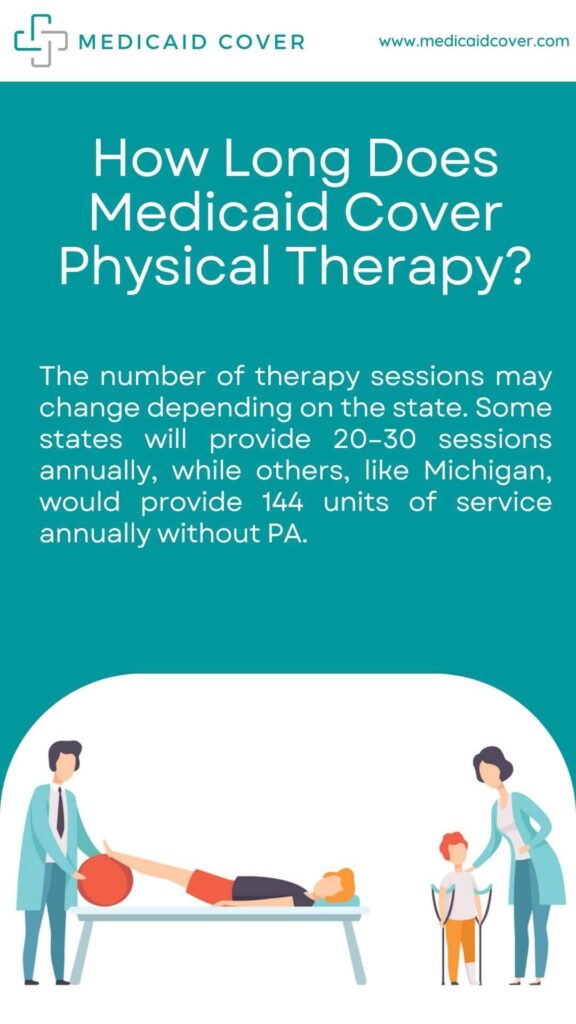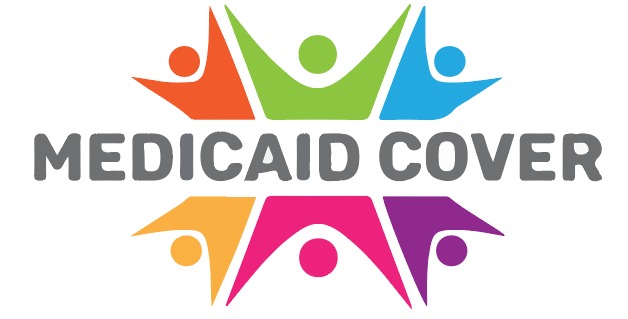Let us look in detail Does Medicaid Cover Therapy? The word Therapy is hypersensitive, and talking about Therapy is crucially sensitive. During the pandemic, many of us realized that mental peace and healthy minds are all we need to live life peacefully and in harmony.
During the lockdown, we realized that Therapy is the only way to keep a person safe and secure from stress, depression, and many tensions.
At the same time, you see, Therapy isn’t available for everybody because the fee charges of higher professionals in the industry are high. But then, Medicaid supports sensory services for its people and initiates a healthy lifestyle.
Let’s read more about therapy support by Medicaid, not just for elder ones but for everyone in their respective states. So many people are confused about Medicaid and its support system for serving Therapy so let’s read to clarify all your doubts. Some people also have doubt does Medicaid cover hearing aids, you can clear your doubt here.
Does Medicaid Facilitates Therapy?
It has been demonstrated that Therapy offers several advantages to persons with mental health issues. Psychology and psychiatry have made significant strides in recent decades to address the obstacles provided by mental health disorders.
Unfortunately, many people worry about the stigma around mental health services and the expense of going to Therapy. Some low-income individuals feel they do not have access to treatments for mental health therapy.
The good news is that those eligible for Medicaid services might be able to access counselling and other types of mental health care through the program’s benefits.
As it is well known, Medicaid covers a wide range of illnesses and health issues, and Therapy is one of them. As Medicaid is administered state-by-state, a person’s residence may impact the extent of therapy coverage. Federal laws control Medicaid, but states are not compelled to provide extra benefits.
Whether a service is insured depends on what Therapy is and whether a person requires treatment. The majority of Medicaid programs include mental and behavioral health services. However, there may be limited treatment access for diseases, including substance misuse.
It should be noted that kids enrolled in CHIP are eligible for full Therapy and other mental health services coverage. This information is based on the 2019 poll, but initiatives are underway to expand coverage for adult mental health and abuse therapy.
People with low incomes may still be able to access sliding-scale providers for affordable psychological care as an alternative to Medicaid coverage for Therapy.
Each patient’s income level is considered while determining the pricing schedule for these professionals. Less wealthy individuals will pay less under such a plan. You might also be able to locate service providers who can deliver services through virtual visits conducted over the phone or online.
Due to the lack of time and administrative expenses associated with a typical clinic visit, these services may be less expensive. Lastly, you can speak with your therapist about your requirements to develop a plan for your treatment sessions that satisfies those demands while still being within your financial means.
We know you are still confused about Therapy provided by Medicaid, so let’s read further to grasp knowledge for your benefit and health care.
What Kinds Of Therapy Does Medicaid Pay for?
Medicaid covers a range of therapeutic modalities. Medicaid will give coverage if your doctor offers a fact-based and medically reasonable strategy matched to the diagnosis. Medicaid covers a variety of therapy kinds, including the following:
-
Cognitive Behavioral Therapy (CBT)
A skill-based approach to conversational Therapy is CBT. Before you start CBT sessions, you and your therapist decide on your worries and issues.
CBT teaches you how to incorporate tactical solutions to your problems. Sessions with a CBT therapist can last anywhere from six to a few months. Most of the time, Medicaid covers once-weekly therapy sessions.
-
Dialectical Behavioral Therapy (DBT)
Dialectical Behavioral Therapy is a skill-based method of psychotherapy that incorporates mindfulness exercises and components of cognitive-behavioral Therapy. DBT was primarily developed to help women suffering from borderline personality disorder (BPD).
However, treatment for various patients has since been added to its use.
To improve four primary sets of skills—emotional control, stress tolerance, mindfulness, and social effectiveness—DBT typically consists of both individual and group sessions.
-
Child-Parent Psychotherapy (CPP)
A therapeutic intervention paradigm called CPP is designed for young children (0–5) who have gone through at least one traumatic event.
Sexual assault, domestic abuse, the passing of a close relative, a major accident, and neglect are several types of trauma in this situation.
Medicaid typically covers one-hour once-weekly sessions with the kid and parent present for CPP courses. The sessions can be conducted at home if the youngster is uncomfortable leaving the house.
-
Acceptance And Commitment Therapy (ACT)
A form of psychotherapy called ACT aims to increase your optimism about life in general. This kind of treatment teaches patients how to deal with challenging situations, ideas, or feelings without seeing them as obstacles.
-
Eye Movement Desensitization Reprocessing (EMDR)
Psychological mediation, rather than psychotherapy, is the foundation of the mental health treatment method known as EMDR. When using EMDR to cope with trauma, you must tell your therapist about the trauma you have experienced.
After that, the therapist will lead you through a series of actual eye movements.
This is due to the theory that eye movements, which have the power to suppress unpleasant memories and heightened emotions, are neurologically linked to the brain’s information processing.
-
Meditation Techniques
Different types of workouts and activities can be incorporated into mindfulness practices. These exercises often aim to teach you how to monitor yourself and your immediate environment without passing judgment.
Controlling your thoughts and emotions consciously is another focus of mindfulness.
After knowing the types of Therapy covered under Medicaid, let’s learn more about mental Health and other therapy components.
Does Medicaid Also Cover Mental Health?
If you’re concerned about your mental health or therapies for loved ones and want to discover if Medicaid will cover any of the fees, you’ve come to the right place.
We have all the knowledge you need to obtain the best mental health treatment accessible because we have thoroughly researched the topic. Read on to discover the startling information that even seasoned Medicaid recipients are unaware of.
Without further ado, let’s find out what the government has to say about mental health and if Medicaid covers it.
-
Everyone’s Mental Therapy Is Covered By Medicaid?
Yes, mental health services are covered by all states. However, depending on your state of residence, this can mean more or less coverage for the treatments you need.
Due to the various budgetary and coverage constraints each state has, this can be somewhat confusing for new Medicaid recipients who are just starting.
Remember that you can always call your Medicaid representatives and ask if your state covers the problem you are currently facing. You might be surprised that Medicaid is the single largest payer of mental health services in the US.
Medicaid recipients make up more than 21% of the population, and many suffer from mental illnesses typically brought on by drug use and poverty.
On the other hand, the government acknowledges the value of mental Health, and a new law called the Mental Health Parity, and Addiction Equity Act (MHPAEA) mandates that more states expand Medicaid coverage to include behavioral disorders and substance abuse.
Does Medicaid Cover Therapy For children?
Yes, younger people (under 21) are always given more consideration. This includes the required mental health coverage that each state must provide.
The best Therapy for any ailment is prevention, and mental health and care are no exception to this rule. Children must access all treatments and Medicaid coverage without a co-payment since they are particularly vulnerable.
Thus, you can now count on Medicaid for financial assistance if your child has a mental illness.
Is Treatment For Depression Covered By Medicaid?
Depression is one of the problems for which you can get counseling and be reimbursed by Medicaid. It has been acknowledged as one of contemporary society’s significant though silent assassins.
Please consult your local Medicaid supervisor, agents, or health insurance reps for further details, as each state has its laws and limits.
Does Medicaid Cover Online Therapy?
Yes, Medicaid currently covers online treatment in the vast majority of states.
Given how challenging the past few years have been for people generally, but particularly for those who are poor, struggle with substance abuse, or have mental illnesses, this is hardly surprising.
It is wonderful to see the US government supporting and allowing Medicaid to pay for online counseling in light of this. Even though most people are still unfamiliar with this long-distance Therapy, recent studies have proven it can be constructive.
Does Medicaid Cover Couples Therapy?
Marriage counseling is one of Medicare’s family and mental health services. Medicare Part B covers it (Medical Insurance).
Suppose it is offered by a behavioral health care professional like a psychiatrist, physician, clinical psychologist, clinical social worker, or nurse specialist.
In that case, Medicare Part B will pay 80% of the cost of counseling therapy. You will have at least the same range as Original Medicare if you have Medicare Advantage, but many MA plans also come with extra perks.
Except for staff members working in clinical institutions or at the offices of Medicare-eligible practitioners, Medicare does not fund family or couple counseling sessions conducted by a licensed Marriage and Family Therapist (MFT).
Does Medicaid Cover Hormone Replacement Therapy?
Medicare pays for services that are medically essential regardless of gender. This article examines the options available to transgender people with Medicare coverage.
Together with our partners at Medicare Expert USA, our editorial staff independently selected and evaluated each Medicare plan and insurance product we highlight.
Important Points :
Regardless of gender, everyone who qualifies for Medicare can enroll. When recommended, hormone therapy is covered by Medicare under Part D. Medicare covers gender reassignment surgery on a case-by-case basis. The insurer must approve the procedure. Laws protect transgender people from various discrimination in the healthcare system.
Does Medicaid Cover Physical Therapy In 2022?
It’s critical to note that there is no one solution to this complex issue because Medicaid benefits vary from state to state and are not governed by the federal government, so you must verify the precise data for your state to obtain the complete picture.

Every state has its own Medicaid program. They choose the kinds and range of services patients can anticipate being covered in these programs.
Medicaid Coverage And Eligibility Requirements For Therapy?
Medicaid was created by the American government in 1965 as a financial assistance program for low-income families and individuals, covering some or all medical expenses. Although most core medical treatments are generally covered, each state has the power to alter its laws and regulations.
These groups are given extra consideration among those who are typically deemed eligible : –
- Pregnant women
- Low-income children
- Low-income adults aged 65 or older
- Low-income parents of Medicaid-eligible children
- Disabled adults receiving Social Security Disability (SSI)
What Is Not Covered By Medicaid Under Therapy?
Long-term inpatient treatment is a notable exception, although many therapies are covered. Medicaid has never hidden this, but the government is working on a new solution to help these people and their expenses.
Medicaid has already extended its coverage to short-term hospital stays, and states can now ask for waivers to cover 30-day hospital stays for the treatment of drug use and mental health conditions.
Final thoughts : –
Medicaid offers financial assistance to low-income individuals and their families. Medicaid might be able to assist if you require mental health services but are unable to pay for them.
Medicaid enrollment may make you eligible for free or low-cost services and federal or state-run programs. To find out what’s available to you, contact the Medicaid program in your state. Don’t suffer in silence because there are various therapeutic options available.
Suppose you’re going through a significant shift in your life, dealing with anxiety or depression, losing a loved one, using drugs or alcohol, or grieving. Find a therapist in your area. Many cost-conscious service providers are ready to give affordable services to needy individuals.
Medicaid has significantly changed how public mental health care is provided. The expansion of Medicaid’s treatment coverage has given public-based therapy providers incentives.
Additionally, it has altered the economic regulations controlling public mental Health, pushing State governments to alter their policies; as a result, many more people now have access to mental health services.
The good news is that treatment is available if you or a family member is struggling with mental health problems, behavioral problems, or substance addiction concerns. You should always take advantage of any chance to improve your mental Health.
Medicaid is typically able to cover some or all of the costs of mental health treatment, including online Therapy. Get your mental health under control, and be sure to speak with your Medicaid representatives as soon as possible if you need further information.
Frequently Asked Questions
How many therapy sessions does Medicaid cover?
Let’s briefly go through Michigan’s Medicaid coverage of Physical Therapy in 2022. The medically essential therapies that Medicaid and MIChild in Michigan cover are physical and occupational Therapy.
Physical Therapy is funded by Medicaid for those who are eminently in need, there is no cost, and patients receive 144 units of service annually without PA.
Physical Therapy is defined in Michigan as the evaluation, education, consultation, or treatment of an individual using effective physical measures, therapeutic exercises, and rehabilitation techniques, with or without the use of assistive devices, to prevent, treat, or lessen a physical or mental disability.
Massage, mobilization, heat, cold, air, light, water, electricity, and sound are physical measures.
How long does Medicaid cover Physical Therapy?
The number of therapy sessions may change depending on the state. Some states will provide 20–30 sessions annually, while others, like Michigan, would provide 144 units of service annually without PA.
Most likely, your therapist will advise three weekly sessions, but as time passes and your progress is assessed, you could only require one or two sessions.
How many therapy sessions do I need?
Cooperation between you and your therapist is essential to the success of Therapy. The best outcomes need effort. No less than biweekly sessions are often advised by therapists. Going too seldom will slow you down and make you wait.

